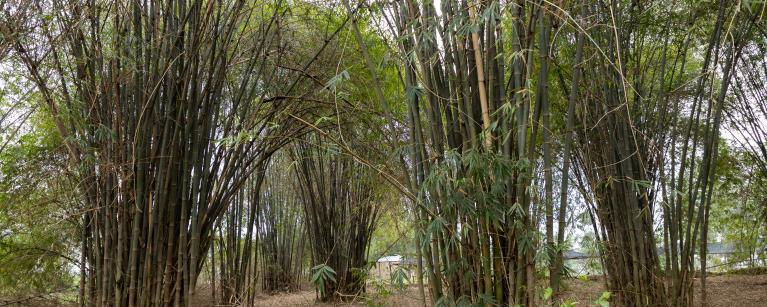Bamboo plantations, much like other bushes, are known to harbour creepy creatures and rodents which prey on available organisms or have the ecosystem as their habitat.
But this isn't a story about the predator-prey dynamics of a bamboo grove. It's about the extraordinary potential of this often-misunderstood plant.
Imagine a plant that races towards the sky, earning its place in the Guinness World Records as the fastest growing on Earth. A plant that greedily gulps down atmospheric carbon and anchors the earth with its tenacious, fibrous roots, a natural warrior against soil erosion and even pesky water hyacinth.
A plant that in our youth, we casually cut to design basic flutes to play popular village tunes, or mimic popular orchestras whose renditions popularly played on our radios.
But beyond the musical and ecological superpowers of bamboo, it is a master of transformation, capable of morphing into nearly 10,000 diverse products.
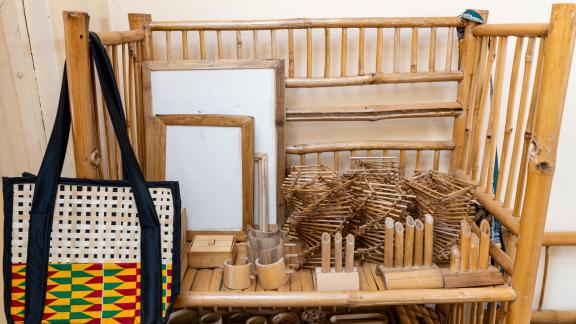
Bamboo products by Webacha. Photo: Bryson Saruni
Daniel Wephukulu, the visionary behind Webacha Company Limited, is a climate expert and agricultural enthusiast who witnessed the bamboo revolution firsthand in East Asia. Inspired by the thriving bamboo economies he encountered, he returned to Webuye, determined to plant the seeds of change.
"In Asia, entire economies flourish on bamboo," Daniel explains, his voice imbued with a quiet passion. "I wanted to bring that economic power back home." And so, he established the region's first commercial bamboo plantation, cultivating a small farm and nurturing countless seedlings.
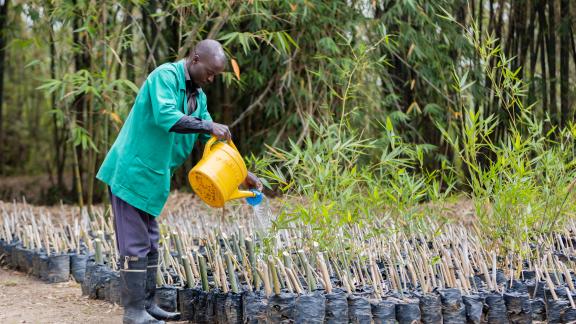
Fred, a staff at Webacha, watering bamboo seedlings. Photo: Bryson Saruni
Daniel's dedication to bamboo caught the attention of the Impact SME Development Program, a catalyst for growth that provided crucial training in circular economy principles, business valuation, financial management, and women's empowerment.
"Before the program," Daniel confesses, "we were undervaluing our own potential. We had seedlings, a source of income we completely overlooked. The program opened our eyes, and now, they're a significant revenue stream."
Webacha's product line is a testament to bamboo's versatility, showcasing elegant cutlery, bespoke furniture, and captivating chandeliers. But the program's emphasis on circularity ignited a spark of innovation, prompting the exploration of new avenues for waste utilization. Even sawdust, once discarded, is now a valuable resource, with collaborations underway to explore its potential in skincare products.
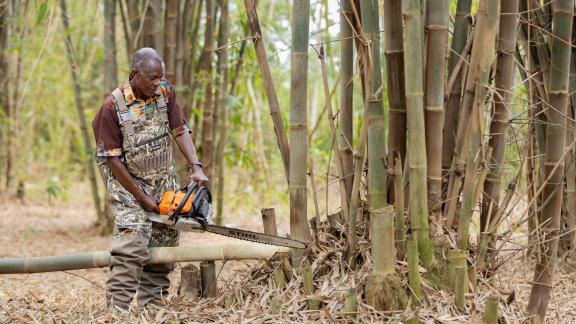
Daniel, founder of Webacha, demonstrating bamboo-cutting technique at the company's bamboo plantation in Webuye. Photo: Bryson Saruni
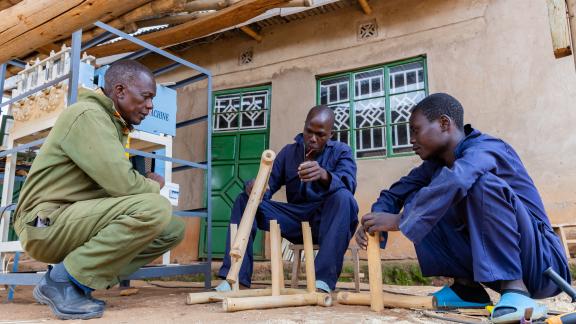
Daniel Wephukulu, in jungle-green overall, with Webacha employees at the company's workshop. Photo: Bryson Saruni
“Before the program, we were undervaluing our own potential. We had seedlings, a source of income we completely overlooked. The program opened our eyes, and now, they're a significant revenue stream.”
The ISME program also facilitated invaluable networking opportunities, connecting Webacha with potential collaborators and honing their pitching skills. The financial clarity gained allowed them to optimize their pricing strategies and ensure fair compensation for their employees.
"We have also been able to compensate our employees accordingly and grown our business to great heights.” Daniel says.
Webacha's story is a testament to the transformative power of bamboo and the potential of sustainable business practices. It's a reminder that even the most overlooked resources, like the humble bamboo, can yield remarkable results when nurtured with vision and expertise. And as Daniel continues to cultivate his bamboo forest, he's not just growing a business; he's cultivating a sustainable future, one elegant stalk at a time.
